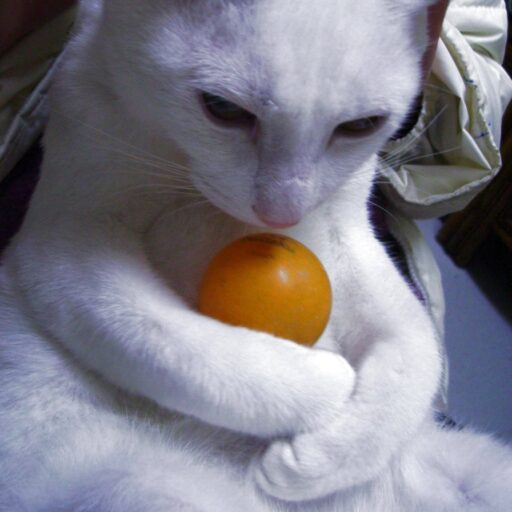情緒形容詞(過去分詞)文法
1.情緒動詞的過去分詞可當形容詞使用,表示「感到~~~」之意。
2.主詞通常是有情緒的 人或動物,而不會是事物。
3.本句型中常用的感官動詞有feel「覺得」、look「看起來」等。
| bored 感到無聊 | surprised 感到驚訝 | scared 感到害怕 |
| excited 感到興奮 | touched 受感動的 | confused 感到困惑 |
| embarrassed 感到尷尬 | frightened 受驚嚇的 | tired 感到疲倦的 |
常見作為情緒形容詞的過去分詞
現在分詞與過去分詞之比較
| 現在分詞當形容詞 | 過去分詞當形容詞 |
| 1.主詞(人或事物)帶給他人 的感受,表「 令人~~ 」之意。 Playing basketball is boring to me. (打籃球令我覺得無聊。) 2.有「主動」的含意。 Tom is boring. (Tom 令別人感到無趣。) | 1.主詞(通常為人或動物)本身/自己對某一事物的感覺, 表「 感到~~~~ 」之意。 I am bored with playing basketball. (我對打籃球感到厭煩。) 2.有「被動 」的含意。 Tom is bored. ( Tom 感到無聊。) |
Don’t be sacred. The dog won’t bite you. 不要感到害怕,那隻狗不會咬你。
因為祈使句開頭主詞為第二人稱單複數,因此是你不需要感到害怕,狗不會咬你。因為是主詞本身的感覺所以使用過去分詞。
The dog was excited when it saw its owner.
狗兒本身看到自己的主人而感覺到興奮,因此是狗狗自己的感覺所以使用過去分詞
Kelly has nothing to do now. She feels bored.
After Tony finished his homework, he felt tired.
Jason felt surprised after I told him the good news.
情緒形容詞搭配特定的介系詞
| be bored with | be excited about | be interested in |
| be surprised at | be scared of | be tired of |
| be tired from |
情緒形容詞搭配特定的介係詞
句型:主詞 + be 動詞/感官動詞 + 過去分詞 + 介系詞 + 名詞/動名詞片語
1.介系詞後面應接名詞片語。I feel bored with his long story.
介系詞 名詞片語
2.如果片語裡出現動詞時,則必須改為動名詞 V-ing。
Brian is excited about having dinner with his girlfriend.
介系詞 動名詞片語
1. Jack is bored with these books.
2. The shy boy is scared of talking to girls.
3. The students are excited about visiting the museum.
4. Tina is surprised at receiving a present from her friend.
5. Are you interested in going to the new movie with me?
情緒形容詞搭配介係詞記憶法口訣
exicted 因為看到對方很興奮所以想要抱住對方 →about
interested 人家就跟你說in 了還記不住
tired 通常我們都會抱怨很累,就會說喔(o)~~~好累喔~~→of
scared 害怕時我們都會把嘴巴張開開所以還是of
surprised 驚訝的時候我們都會口吃aaa~~a半天都沒a出來→at
bored 無聊死了→with
情緒動詞、過去分詞、現在分詞的使用差異比較表
| 情緒動詞 | |||
| 事物 | inspire (使..鼓勵) worry (擔憂) satisfy (使…滿意) scare (使…害怕) embarrass(使…尷尬) interest(使…感到興趣) excite (使…感到興奮) bore (使…感到煩燥) touch (使…觸動人心的) tire (使….感到厭煩) surprise(使…感到驚訝) | 人. (受詞) | 中文 |
| English homework | bored | me. | 英文作業使我無聊。 |
| The story | touched | Mary. | 故事使Mary感動。 |
| Playing baseball games | excites | the students. | 棒球比賽使學生興奮。 |
| 現在分詞 | |||
| 事物 | beV | (ving) interesting(令人有趣的) exciting (令人刺激的) boring (令人厭煩的) touching (令人同情的;感人的) tiring (令人感到疲倦的) surprising(令人驚訝的) | to 人. (受詞) |
| English homework | was | boring | to me. |
| The story | was | touching | to Mary. |
| Playing baseball games | is | exciting | to the students. |
情緒動詞當現在分詞使用
| 人 | Be V/連綴動詞 be become feel get | 過去分詞 interested(感到有趣的) excited (感到刺激的) bored (感到厭煩的) touched (感到同情的;受感動的) surprised(感到驚訝的) scared (感到害怕的) tired (感到厭倦於 ) tired (因…而感疲倦) | 介係詞 | 事物/人 v-ing/N |
| I | was/felt | bored | with | English homework. |
| Mary | was | touched | by | the story. |
| The students | are/feel | excited | about | playing baseball games. |
1. 我對英文感到興趣。I am interested in English.
2. 他對網球感到興奮。 He is excited about tennis.
3. 他們對倒垃圾感到厭煩。
They are bored with out the trash.
4. 自然使Tom 感到興趣。
Science interests Tom.
=Science is interesting to Tom.
=Tom is interested in science.
5. 那部電影使我們感到厭煩。
That movie bored us.=That movie was boring to us.=We was bored with that movie.
6. 購物使那些女孩感到興奮。
Shopping excites those girls.
=Shopping is exciting to those girls.
=Those girls are excited about shopping.
常用的情緒動詞、現在分詞、過去分詞與介係詞表
| 情緒動詞 | 現在分詞 | 過去分詞 | +介系詞 |
| surprise | surprising (令人驚奇的) | surprised (感到驚奇的) | at |
| interest (使…有興趣) | interesting(有趣的) | interested (感到有趣的) | in |
| bore(使…無聊) | boring(令人厭煩的) | bored(感到厭煩的) | with |
| Inspire (使啟發) | inspiring (令人啟發的) | inspired (受到啟發的) | by |
| excite (使…興奮) | exciting (令人興奮的、刺激的) | excited(感到興奮的) | about |
| touch (使…感動) | touching (令人感動的) | touched (感到感動的) | by |
| worry(使擔心!) | worrying (令人擔心的) | worried (感到擔心的) | about |
| tire(使…疲累) | tiring(令人疲累的) | tired (感到疲累的) | of |
| satisfy(使…滿意) | satisfying (令人滿意的) | satisfied (感到滿意的) | with |
| scare(使…害怕) | scary(令人害怕的) →scaring 不可當形容詞用 | scared(感到害怕的) | of |
| embarrass (使尷尬、使丟臉) | embarrassing(令人尷尬的) | embarrassing (感到丟臉的) | about |
be amazed at=be astonished at= be shocked at =be surprised at (對…感到驚嚇/震驚)
be wrapped in sth.(壟罩於…之中)
be annonyed with sb.(對…感到氣惱)
be tired with= be fatigued with =be exhausted with (因…而很累)
常見情緒動詞、現在分詞、過去分詞
| confuse使……困惑 | confusing | confused |
| puzzle使……迷惑(困窘) | puzzling | puzzled |
| frustrate使……挫折 | frustrating | frustrated |
| disappoint使……失望 | disappointing | disappointed |
| annoy使……煩躁 | annoying | annoyed |
| embarrass使……丟臉 | embarrassing | embarrassed |
| frighten使……害怕 | frightening | frightened |
| terrify使……害怕 | terrifying | terrified |
| exhaust使……精疲力竭 | exhausting | exhausted |
| fascinate使……著迷 | fascinating | fascinated |
| astonish使……詫異 | astonishing | astonished |
情緒動詞對應之名詞
| interest → interest surprise → surprise satisfy → satisfaction excite → excitement amaze → amazement bore → boredom tire → tiresome shock → shock | confuse → confusion puzzle → puzzlement frustrate → frustration disappoint → disappointment annoy → annoyance embarrass → embarrassment frighten → fright terrify → terror exhaust → exhaustion fascinate → fascination astonish → astonishment |
- 英文字母大寫規則 Capitalization
- 英文人稱代名詞、名詞單複數
- am is are was were 與do does did done
- 主詞 所有格 受格 所有格代名詞 反身代名詞表
- N of N所有格 非生命所有格
- 指示代名詞this that these those 文法
- 時間介係詞 on in at
- 時間介係詞 in at on 介係詞總整理
- talk speak say tell 都是說差別在哪裡?
- 附加問句文法
- 附和句文法
- 交通工具搭乘文法
- Here倒裝句文法
- Have 用法總整理1
- Have 用法總整理2
- take用法總整理
- 英文被動語態文法
- 沒有被動語態的動詞
- 被動語態(感官&使役&授與動詞)
- 後位修飾法 形容詞片語修飾名詞
- 情緒形容詞(過去分詞)文法
- too…to/enough to/So … that…/such that 文法
- Yes or No 疑問句改間接問句
- 間接問句文法講義 練習題
- As long as /as soon as 文法
- 雙字片語可分式片語與不可分式片語總整理
- 英文字尾er or ist 職業英文單字
- late latter later latest last 文法
- die death dead 用法與片語
- someday/one day /the order day/some other day 用法
- Thank 人 for 事為某事感謝某人 感嘆句文法
- A marry B A和B結婚英文怎麼說
- 英文時間地點哪個先寫
- have a big sale/on sale/for sale 意思
- on time/in time/at the end of/in the end差異
- fill與stuff 使用差異
- 幾分之幾英文怎麼說
- Help文法句型 幫助某人片語
